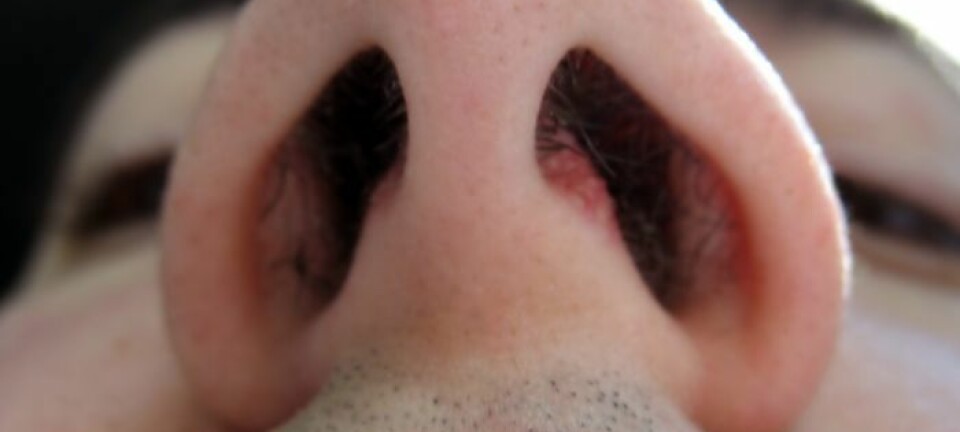
No health risk from scented products
Perfumes are in the clear.
Many people react to scented items and the mere thought of a scented candle gives them a headache, asthma attack, or irritated throat or nose.
But scientists suggest that many of these reactions arise simply from ‘the thought’ of scented substances and not the chemicals themselves.
Typical perfumed substances found in everything from cleaning products to consumer products are not present in the air in large enough concentrations to have any harmful effect on otherwise healthy people.
“A lot of people complain about feeling sick from a number of scents. So it’s of course interesting whether perfumes are found in amounts that can have a toxic effect on people,” says Peder Wolkoff who studies indoor climate at the National Research Centre for Work Environment.
“Our research shows that the four most commonly used scents are only found in quantities that people can smell, but not in the concentrations needed to make people sick by inhalation,” he says.
The new study is a review of the current knowledge in the field and is published in Environment International.
Read More: How the brain connects words and smells
35 per cent of North Americans avoid scented products
A number of organisations work on behalf of people who are particularly sensitive to scent and lobby to ban scented substances in public spaces, for example in public buildings.
Previous research has shown that 35 per cent of North Americans, when asked about the subject, reported that they suffer side-effects of scented products, such as asthma attacks, mucous membrane irritation, headaches, and migraines. They attribute these conditions to the scented substances in the air in their workplace and elsewhere.
“There’s an extremely high number of people who say they react to perfumes. At face value it’s an extremely serious matter – and a challenge to understand,” says Wolkoff.
Read More: Why certain smells trigger memories
Reviewed 180 scientific studies
Wolkoff and colleagues collected data from 180 previously published studies that included information on:
- The amount of scented substances in public spaces.
- The level at which scented substances can have a toxic effect on animals or people.
- Studies of the effect of scented substances on the eyes, nose, and throat.
- The ability of scented substances to combine with chemicals in the atmosphere and create other harmful substances.
The highest levels were measured in offices, schools, and homes. And while concentrations exceed the scent threshold, allowing us to smell them, there was no evidence that concentrations exceeded toxicity levels so as to be harmful.
“Our study absolves these scented substances of making healthy people sick at the concentrations found in public spaces. It’s not a surprise for us having worked in the field for 35 years,” says Wolkoff.
Read More: How do we train our sense of smell?
An unsurprising result
Neither are the results surprising to Jesper Elberling, a doctor at the Department of Skin and Allergy at Herlev Hospital and Gentofte Hospital, and previously head of the Centre for Scent and Chemical Sensitivity.
“It’s unlikely that people get allergies from scented substances in the doses found in indoor climates. I totally agree,” he says. “Our own research with patients points in the same direction—that perfumes indoors have primarily a sensory effect.”
Read More: The aroma of chocolate chip cookies boosts coffee sales
Patient’s disagree
Some patients have a heightened sensory sensitivity causing them to react more severely to pain, says Elberling. This may help to explain the strong reaction to inhalation of perfumes indoors.
“The results of the study are at odds with what patient’s often describe: that scents in the indoor climate feels decidedly toxic. It’s interesting and suggests that we don’t yet understand the phenomena related to changes in the body’s sensory functions that make people feel sick and which involve some mechanisms beyond toxicological or allergenic reactions,” says Elberling.
Wolkoff does not deny that people become sick, or feel that they are sick. The question is simply, how this happens?
Perhaps it is the fear of synthetically produced scented substances, even though they are identical to those produced naturally.
“If you smell something without knowing what it is or the source of it, you can react to it even though it’s not the perfume that you’re reacting to. So we also need more information around what scented chemicals are and what is and is not dangerous. Many of the scented substances are found in pine wood, in the garden, or when we peel a mandarin,” says Wolkoff.
-------------------------
Read more in the Danish version of this story on Videnskab.dk
Translated by: Catherine Jex











